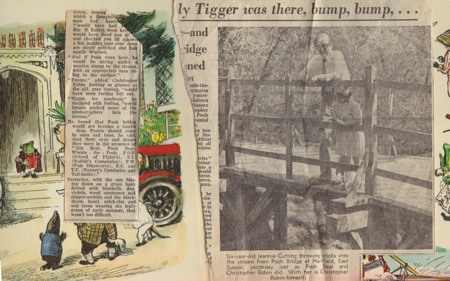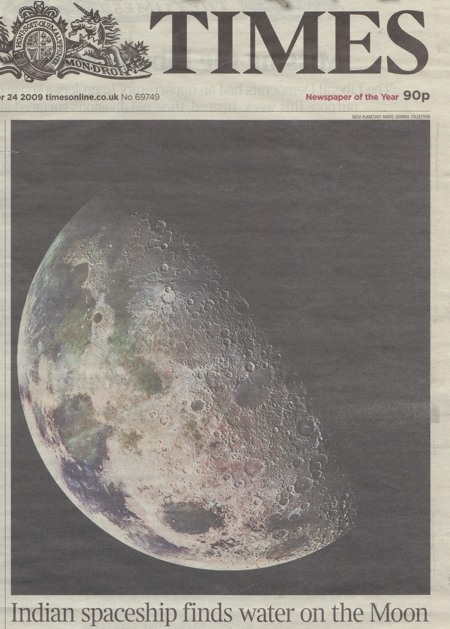Cuttings
August 26, 2012 ・ Blog

One morning last September, my dad found my grandma lying semi-conscious in a pool of her own blood in the downstairs hallway of her home. She’d fallen the previous night, perhaps having tripped over her elderly dog, and hit her head on a door frame. For my parents, it was the final straw. She’d been living alone with dementia - fiercely independently - for nearly ten years. Clearly, she couldn’t any more.
It was time to find her a care home, a quiet, newly built place nearby where she still lives today in a state of constant muddle.
With her move came the huge job for my parents of clearing her home. She lived in a large house that was filled with 50 years of accumulated clutter. It’s fair to say that my grandma and grandpa were hoarders of a sort. They didn’t keep rubbish and their home was always tidy, if dusty, but every space was filled with archives of one sort and another.
On and under tables in the living room were piles of magazines and newspapers - National Geographic, Which, Reader’s Digest, The Grower, Telegraph and Radio Times. There was a room filled with programmes from the many plays and concerts they used to attend. My grandpa diligently kept journals with notes of the weather and the briefest of notes of what happened each day.
Grandma was never quite so systematic as grandpa. Rather than an archivist, I suppose she’s a collector. She’d have every new first day cover sent to her, though she didn’t actually collect stamps per se. She’d buy the official BBC book for any TV series she watched, especially those on nature. Both she and grandpa would habitually record hours of radio plays, TV programmes and concerts on the technology of the time: reel-to-reel tapes, cassettes and VHS.
I don’t know if anything they’d collected was ever thrown away, not even when they moved from the house in which they’d lived for decades, shortly before grandpa died. They stacked still-filled drawers on the lorry for the journey from Sussex to Suffolk, transplanting their lives from one house to another. It certainly worked: their final house felt exactly the same as the one I’d always known them to live in.
All that stuff. Going through her house when grandma moved to her home, it all seemed a terrible waste. Apparently undisturbed for years, there wasn’t much evidence she ever went back to these accumulated collections, though I guess she took satisfaction in knowing they were there.
Who knows what it did to wrench her away away from it all? Perhaps it anchored her to her past. Living in her constant present, cut through with great dislocated shards of her past, she certainly can’t say. As far as she’s concerned, sitting in her care home, she’s in transit: on her way home, or away from it, often to Canada where two of her daughters live. Her husband is simultaneously alive and has only just died. Her childhood in Wimbledon is far closer to her grasp than last Christmas is.
For my parents, dealing with all those papers and things - china sets and Tupperware, children’s games and ornaments - was suffocating. And whether mouldering or still crisply usable, it’s all gone now. To charity shops, landfills, recycling stations and to her children and grandchildren’s homes. Two lives dissolved.
We took a few items, including a copy of Winnie The Pooh and Space: The Story of Man’s Greatest Feat of Exploration, by Patrick Moore, for our kids. Though yellowing, their dust jackets brittle, they were in fine condition; neither had been read for years. But they had been opened. When we got them home, newspaper cuttings fluttered out of their pages.
Winnie The Pooh contained a May 1979 story across several different cuttings of the bridge that inspired A.A. Milne’s story about the Pooh sticks game. Having been in danger of falling down, the bridge had been saved.

Then, from out of the Space book came a more recent one, charting the 2009 discovery of water on the Moon. She was evidently still taking these cuttings recently.
Who were these cuttings for? Her? Grandpa? Whomever the books would pass to? Did she personally know the Winnie The Pooh bridge? Why, of all astronomical discoveries over the 44 years since Space was published, did water on the moon in particular deserve memorialising?
Now part of our kids’ burgeoning, messy, constantly in flux book collection, the cuttings were never going to last long. They don’t make much sense alone, of course. But they also didn’t make much sense in the books, remnants of thought processes that were lost as soon as grandpa died and grandma’s memory went.
I thought about saving them, but they’d be a weird, secondhand sort of memorial. So I threw them away. But not before I scanned them.